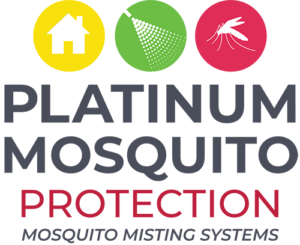The third-largest equine state in the nation is Florida. The state is host to numerous internationally renowned equine events and facilities thanks to a climate that encourages year-round activities. Although there are many equestrians in the Sunshine State, the horse species has particular difficulties there. These difficulties will be described here, along with methods for overcoming and averting them.
INSECTS
In Florida, the heat and humidity provide the ideal conditions for insects to flourish. In addition to being a nuisance, insects can harm horses in more serious ways. An allergic reaction to the biting of mosquitoes, flies, or “no-see-ums” is known as insect hypersensitivity. Around the tail base, belly, mane, and face, one may generally notice extremely itchy sores and hair loss. The parasites that cause summer sores are also spread by flies. Anywhere there is a breach in the skin or where moisture collects, summer sores can develop. They frequently appear in the corners of the lips, the eyes, and the distal extremities. Granules of yellow or white are frequently found within these lesions.
WHAT YOU NEED TO DO:
- Use the proper fly sprays and insect repellents everyday. Spraying with 1% permethrin is advised.
- As advised by your veterinarian, administer the proper deworming. Summer sores will respond well to ivermectin products.
- When turning out horses, wear a fly mask.
- Avoid excess manure buildup and free standing water.
- Insects in the environment can be reduced using fans and fly/mosquito traps.
- Please get in touch with your veterinarian for more advice if you notice any lesions that could be summer sores or insect hypersensitivity lesions.
SAND
Sand is a significant component of the soil in Florida. Sand can be mistakenly consumed, and consumption increases when grasslands are overgrazed. Sand ingestion over time may result in a buildup in the digestive tracts. Sand buildup can cause the gut mucosa to become irritated and eventually obstruct.
WHAT YOU NEED TO DO:
- Use feeders or tubs to feed horses off the ground. Additionally, put mats under feeders to prevent feed spills on sandy soil.
- To encourage sand movement, feed hay and fiber in the right amounts.
- Steer clear of overgrazed pastures.
- Administer Psyllium or items containing Psyllium. One cup of psyllium over the feed should be given to an average 1000-pound horse once every day for seven days in a row each month.
- Please get in touch with your veterinarian for more advice if you see any symptoms of colic, including decreased eating, elevated heart rate, pawing, rolling, or other behaviors.
HEAT STRESS
If the temperature and humidity are above 180, heat stress can develop even in healthy horses. In the summer, Florida’s climate makes this possible frequently. Poor conditioning, intense activity, anhidrosis, and dehydration are risk factors for heat stress. It is also crucial to keep in mind that horses that have recently relocated to Florida will need some time to become used to the climate. Let’s go into further depth about heat stress.
WHAT YOU NEED TO DO:
- Make sure that paddocks have access to fresh water and enough shade.
- During times of low heat, such as early in the morning and late in the day, turn horses out.
- When the temperature exceeds 90 degrees Fahrenheit, avoid having the horses from working.
- Contact your veterinarian for additional help if signs of heat stress (increased respiration rate, lethargy, decreased eating, and shade seeking) are noticed.
Contact Our Team Today!
As an experienced mosquito misting company in Broward County, FL, Platinum Mosquito Protection is the team to call to install your new system. We have nearly two decades of experience in the business and bring a wealth of knowledge and expertise to every installation we complete. You can feel confident your property will be more comfortable, and your animals will be protected from the pesky activities of mosquitos, flies, and other annoying and potentially harmful insects. Our team can help you determine the best way to implement a misting system at your property, whether that’s inside your stables or around your corral. Please reach out to us today to discuss your needs and schedule a consultation.



